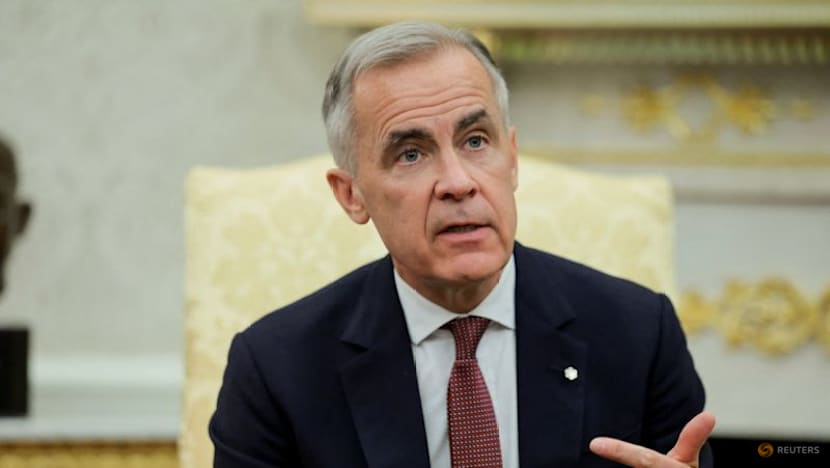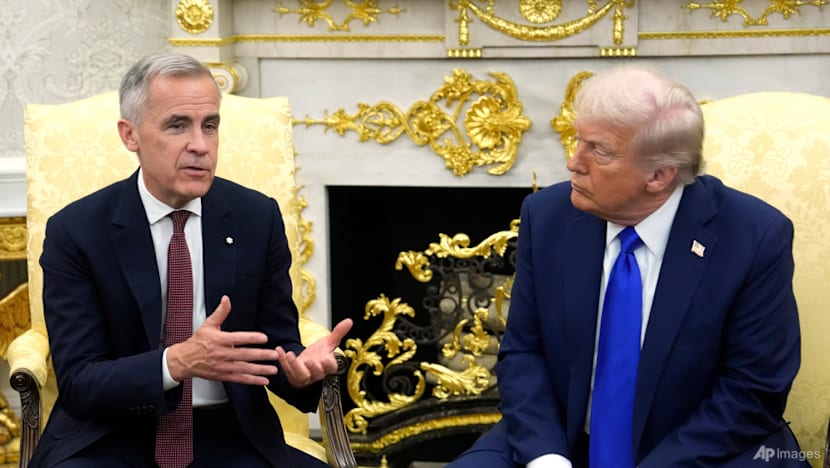Canada inflation ticks up as Carney says US trade talks ‘intensive’

MONTREAL: Canada’s annual inflation rate rose to 2.4 per cent in September, data showed Tuesday (Oct 21), as Prime Minister Mark Carney said Ottawa was in “intensive” talks with Washington to reduce tariffs that have contributed to higher consumer prices.
Speaking in Ottawa, Carney was asked about a report in The Globe and Mail saying that a trade deal with US President Donald Trump in three key sectors, steel, aluminium and energy, could be ready to sign within days.
“We’ll see,” Carney told reporters. “We’re in intensive negotiations.”
He said both sides were seeking ways to reduce barriers that have affected supply chains and manufacturing costs. The prime minister added that discussions were continuing in good faith, but that “some challenges remain”.
TARIFFS STRAIN TRADE TIES
About 85 per cent of cross-border trade remains tariff-free under the existing North American trade pact, the United States–Mexico–Canada Agreement (USMCA).
However, Trump’s global sectoral tariffs, particularly on steel, aluminium and autos, have hit Canada hard, causing job losses and squeezing manufacturers.
Canada is a major supplier of steel and aluminium to US industries, and Carney has previously expressed optimism about a breakthrough in those areas. But he also noted that Trump remains committed to imposing tariffs on foreign-made vehicles, a move that could seriously affect Canada’s auto sector given the integrated nature of North American car production.
Trade experts say any deal to ease tensions could boost business confidence ahead of the USMCA review scheduled for 2026, but they warn that political factors in Washington could delay an agreement until after the US election cycle gains momentum next year.

POTENTIAL DEAL THIS MONTH
Mr Carney’s office declined to provide further details on the substance of the negotiations, but officials did not rule out a deal being reached before the end of the month.
He said his government’s priorities included protecting Canadian industries while maintaining the broader stability of the USMCA framework. The prime minister also stressed that Ottawa remained committed to constructive engagement with the United States despite disagreements over tariffs.
Analysts said the outcome of the talks could have broader implications for North American trade policy, especially if they set a precedent for revising targeted tariffs without reopening the entire agreement.
FOOD COSTS DRIVE PRICE INCREASE
The September inflation rate came in slightly above market expectations, with rising grocery costs a major contributor to the increase.
Consumers paid about 4 per cent more for food last month compared with September last year. Economists attributed the uptick to higher import costs following recent tariff adjustments, as well as supply disruptions linked to global commodity markets.
Food price inflation has accelerated since April, when some of Mr Trump’s tariffs came into effect. Canadian supermarkets, which rely heavily on imports from the United States, say tariffs and countermeasures have forced suppliers to raise prices even though most cross-border food trade remains tariff-free.
Retail executives have warned that if tariffs remain in place, further price increases could continue into early 2026, putting additional pressure on household budgets.














